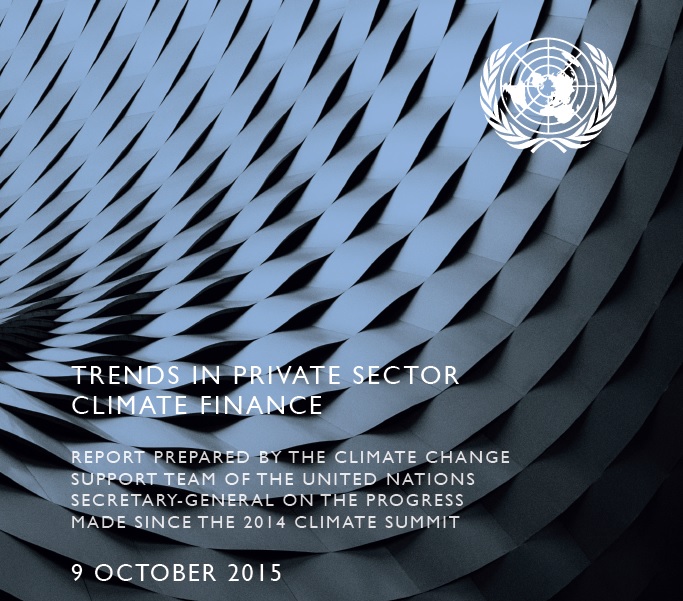PREPARED BY THE UNITED NATIONS SECRETARY‑GENERAL ON THE PROGRESS MADE SINCE THE 2014 CLIMATE SUMMIT
October 9, 2015. The finance community is emerging as a partner in the challenge of responding to climate change – policy makers have an opportunity to both deepen and broaden this partnership.
The momentum in the sector was given a substantial boost at the 2014 Climate Summit hosted by the UN Secretary-General in New York.
The five ‘inflection points’ demonstrating the early signs of a deep shift cover all the key aspects of the sector:
- Building on the targets and commitments announced at the 2014 Climate Summit, a range of financial institutions from developed and developing countries have recently committed hundreds of billions of dollars in additional finance to support low-carbon and climate-resilient investments in all parts of the world.
- A new green bond market has been created and is expanding at a rapid pace.
- A rapidly increasing number of companies are adopting internal carbon prices.
- Investors are expressing increasing concern around the activities of carbon-intensive assets and companies.
- The insurance sector is scaling up its efforts to respond to the climate impacts that are already locked in.
Building on the positive momentum in the finance sector, as well as recent policy action often in non-OECD countries, governments now have a unique opportunity to change rules so as to address the current gaps and weaknesses in private sector climate finance. Important changes to foster private sector low carbon and climate resilient investment have been made in recent years. Many of these have been pioneered in non-OECD countries. But further action is required by policymakers from around the world; action that will be supported by investors who are concerned that delays will only increase economic costs and put at risk tens of trillions of dollars of financial assets. Policymakers need to increase the demand for low-carbon, climate resilient investment. More policy attention is needed to allow low-cost capital to flow towards these opportunities.
